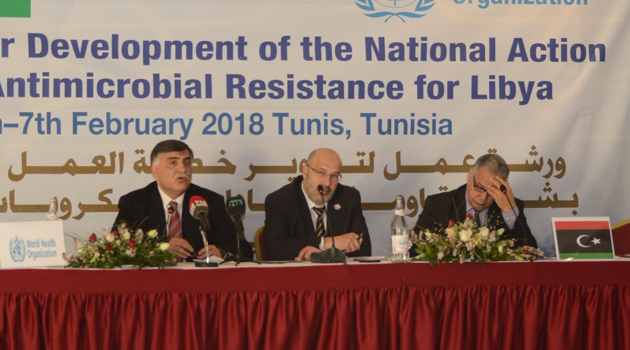Health Workshop on Developing National Action Plan for Antimicrobial Resistance in Libya
The World Health Organization (WHO), in collaboration with the Libyan ministry of health and the National Center of Disease Control (NCDC), has conducted a Health Consultative workshop on the antimicrobial resistance in Libya.
It brought together 25 participants from different sectors and organisations, including human health, agriculture and animal health, the Food and Drug Control Center (FDCC), the general syndicate of pharmacists, hospitals’ representatives in addition to the International Office of Migrants (IOM).
The workshop, which took place in Tunisia, aimed at establishing a National Coordination Committee for antimicrobial resistance.
The national coordination committee would review concepts and causes of as well as challenges and responses to antimicrobial resistance at the global and regional level, and analyze the situation in Libya, to be able to draft a comprehensive national action plan to address gaps and urgent needs to address the antimicrobial resistance in Libya.
In his opening remarks, Dr Jaffar Hussain, Head of Mission WHO Libya said:
“Antimicrobial resistance threatens the very core of modern medicine and the sustainability of an effective antimicrobial resistance.
"It is a crisis that must be managed with utmost urgency. “Failure to address this problem globally could result in 10 million deaths by 2050, and has a very high economic cost if we don’t act.”
(Source: UNSMIL)





